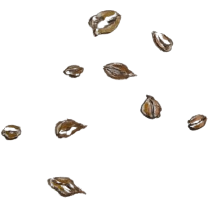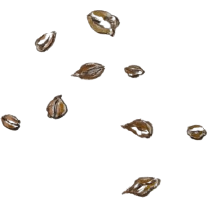
The myths surrounding domestic and sexual violence
The scale of abuse and violence could not exist unless it is woven into the very fabric of societies and could not continue if it were not supported by the deep-rooted cultural assumptions and myths surrounding the value and position of women. Violence is sustained by myths.


Many myths have their origins in and can be created by unwritten rules. Unwritten rules are the values, beliefs and attitudes we hold, manifesting from various sources and reinforced in a variety of ways.
The existence of myths can contribute to perpetuating domestic and sexual violence and can continue to compound the shame and stigma associated with surviving such abuse. By believing societal and cultural myths and allowing domestic violence to remain unchallenged, faith communities arguably enable impunity and silence for perpetrators to continue to oppress and abuse women.
There are numerous narratives and assumptions within every religious context and offering a space to explore and discuss can dispel myths that enforce the victim as the problem and to examine underlying myths that collude with the perpetrator in taking responsibilities for their violence.
The resource seeks to explore how powerful and harmful such myths can be and their broader impact upon the development of the cultural and discriminatory value system underpinning domestic and sexual violence within various contexts.
“Violence against women, inside or outside the home, is never justified. Violence in any form – physical, sexual, psychological or verbal – is sinful; often it is a crime as well.”
Myths within faith communities:
-
Alcohol makes him violent.
No – Abusers are also violent when they are sober. Many men who drink alcohol never use violence against their partners and wives.
-
Mental health/illness makes him abusive.
No – there is no research that supports this myth. The perpetration of abuse and violence is always a choice. Domestic abuse happens throughout every level of society, regardless of health, wealth or status.
-
He’s doing this because he was abused as a child.
No – Using violence and abuse is a choice a perpetrator makes; he alone is responsible. It is unrelated to childhood.
-
She must have done something to provoke him.
No – This myth is widespread, deep-rooted and often based on the belief that the man is the head of the family, and that his role is to punish his partner or children if they act in a way he doesn’t approve of. This myth is dangerous because any reference to ‘provocation’ means that we are blaming the victim and relieving the abuser of responsibility for the violence.
-
It doesn’t happen in our church community and only happens in working class families or where there is poverty.
No – Domestic violence affects people of all socioeconomic backgrounds and education levels. Anyone can be a victim of domestic violence, regardless of age, race, gender, sexual orientation, faith or class.
-
Domestic violence is a private matter, we shouldn’t get involved.
No – Domestic abuse is a crime. It is not an individual but a social problem. We all need to speak out against it.
-
It’s caused by weakness/anger management issues.
No – Domestic abuse is rarely about losing control, but taking control. Abusive men rarely act spontaneously when angry. They consciously choose when to abuse their partner: when they are alone, and when there are no witnesses (if there is a witness, then usually they are a child). He has control over whom he abuses.
-
Christian men don’t abuse their partners.
No – Research reports Christian men can be abusive, and also cause further harm by relying on bible verses or religious language to justify their behaviour (this is classified as spiritual abuse).
-
If a woman is really experiencing abuse, she will/should just leave.
No – There are many barriers to navigating a way to safety, particularly when leaving an abusive and violent relationship or marriage. Research shows that a woman is in most danger when and after she leaves. Up to 75% of homicides occur upon separation and there is an increase of violence for up to 2 years after separation.
-
Christian wives should ‘just forgive and return’.
No – The concept of forgiveness is often misapplied in abusive situations. Emphasis is often placed on the responsibility of the woman to forgive, rather than on the need to hold the perpetrator responsible and accountable for his own behaviour. This endangers women and children’s lives.
-
The concepts of headship and submission entitle a man to treat his wife however he chooses.
No– Regardless of an individual’s view on gender roles within a home or community, nothing entitles a man to subject his wife to abusive behaviours. Such abuse distorts the image of God in which women and men were created.
-
‘For better for worse, in sickness and in health’ means that women should tolerate abuse.
No – Some women believe that it is their religious obligation to remain committed to their husbands, even if that means tolerating violence and abuse within a marriage. Religious leaders and communities may reinforce this misconception and we must reassure survivors God does not want anyone to suffer, or remain in violent and abusive situations.
“Theological scholar Walter Brueggemann tells us, ‘the first step towards prophetic obedience is the naming of what is wrong: a commitment to truth-telling that overcomes indolence, indifference and vested interest’ The duty of church leaders is to tell the truth, even when what is horrible is found within our own churches. Helen Paynter, 'The Bible doesn't tell me so. Why you don't have to submit to Domestic Abuse and Coercive Control.' ”
 Exit
Exit


